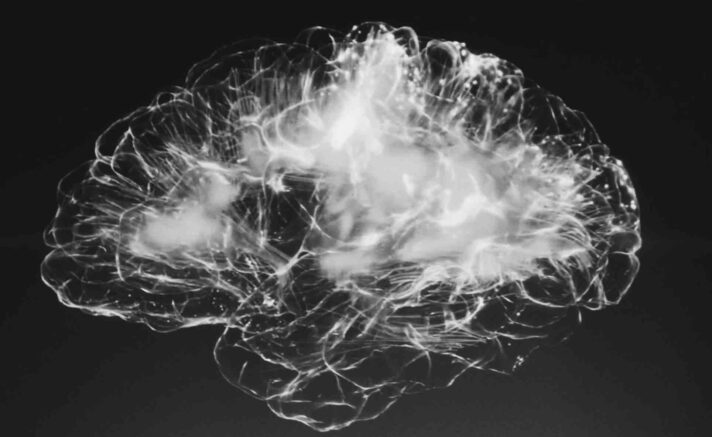Psychevity is the theory that improved mental health leads to increased lifespan. The word “psychevity” is simply the combination of “psych” and “longevity.”
The idea of a healthy mind leading to a longer life may seem logical. That’s because a brain that is thinking and behaving in a healthy manner should lead to direct positive trickle down effects to your body.
What’s the idea behind psychevity?
Although the correlation between a healthy mind leading to a longer lifespan is widely accepted, there is no specific word to identify the relationship. That’s what ‘psychevity’ addresses.
With increased interest in extending human healthspan and lifespan, it’s my belief that the focus on mental health will go far beyond simply addressing traditional problems like depression, anxiety, and/or addiction.
In the future, mental health care will be provided with the intent of extending healthspan and lifespan. This is similar to how humans currently use exercise to keep their musculoskeletal system healthy.

Today there are many brain exercises. Reading, games, and other cognitive stimulating activities are widely accepted as improving brain health and function. These practices are also thought to help prevent diseases such as Alzheimer’s.
But are there ways we can promote psychevity beyond traditional brain games?
Where’s the research?
Unfortunately, there is an overwhelming amount of research that shows the results of poor mental health, life expectancy, and the impacts to our world. Much of this information shows how to inhibit psychevity. For example:
“In total, poor mental health was estimated to cost the world economy approximately $2.5 trillion per year in poor health and reduced productivity in 2010, a cost projected to rise to $6 trillion by 2030.” –The Lancet
“According to the World Health Organization, people with severe mental health disorders have a 10–25-year reduction in life expectancy.” –TRV
Furthermore, “over 50% of people who do have mental health or addiction problems never seek treatment.” This could suggest that global mortality rates may be significantly impacted by mental health. Especially when you consider that one billion people worldwide suffer from some form of mental disorder.
The correlation between poor mental health and a shorter lifespan (poor psychevity) has been documented and proven at length. (Just search “mental health and lifespan” and see what you find!)
Are there ways to promote psychevity?
As just discussed, you’re much more likely to find information that proves poor mental health results in a shorter life. However, more research is coming to light that proves the opposite – that a healthy mind can extend your lifespan.
In 2009, Yale University and the National Institute on Aging teamed up on a research project:
“Social psychologist Becca R. Levy and colleagues looked at surveys taken by 386 men and women in 1968, when they were under age 50, and then studied their subsequent health records. Nearly four decades later, the subjects who had held the most negative stereotypes about older people (answering “true” to statements such as “older people are…feeble…helpless…absent-minded…make too many mistakes”) were significantly more likely to have had heart attacks or strokes than those who held more positive views. In the negative group, 25% had cardiovascular events, versus 13% of the positive group.” –WSJ
This research suggests having positive thoughts about your lifespan may also be important. This would go beyond simply having good mental health. Both keeping your mind engaged and active could be just as important as what you’re actually thinking about.
Promoting psychevity may be more about how you exercise your mind, rather than just staying mentally active.
Psychevity companies?
It’s likely that there are companies already in existence that unknowingly promote psychevity. Instead, they may be currently marketed for mental health conditions or increased cognitive function. Here are some examples:
- Psychiatric medications: “Results of a Johns Hopkins study suggest that individuals with schizophrenia are significantly more likely to live longer if they take their antipsychotic drugs on schedule, avoid extremely high doses and also regularly see a mental health professional.”
- Virtual reality: What if you could trick your brain into thinking certain things, based on what your eyes are actually seeing? For example, Tripp is a virtual reality company that provides experiences aimed at improving mental health. Are they inadvertently promoting psychevity?
- Social clubs: There are many social clubs – especially relating to business – that encourage their members to think positively and engage in productive behavior. Does a membership to one of these types of groups help your psychevity?

In the future, perhaps there will be companies, products, and services that specifically target psychevity:
- Transplantation: Although we can’t do brain transplants, perhaps the future may include the ability to transplant, or promote growth, of parts of the brain to improve psychevity. Xenotransplantation could be another option.
- BCI’s: Companies such as Blackrock Neurotech and Neurolink that are working on brain computer interfaces (BCI’s) could ‘tell’ the brain what to think, to promote psychevity.
- Psychedelic medicine: Because of anti-inflammatory and neuroplasticity characteristics, there are new theories and research (here, here, here, here, here, here, here, and here) that suggest psychedelic medicine could have long lasting positive biological effects on the human brain.
Brain health + lifespan = psychevity
The focus on extending human healthspan and lifespan, generally known as longevity, has gained significant attention over the past several years. Both governments and individuals have recently committed billions of dollars to fuel longevity research.
What will these current and ongoing studies reveal?
Similar to a human’s gut microbiome, we’ll likely discover how our brain’s health is directly correlated to our lifespan. We’ll then find ways to promote psychevity for a longer, healthier life.




